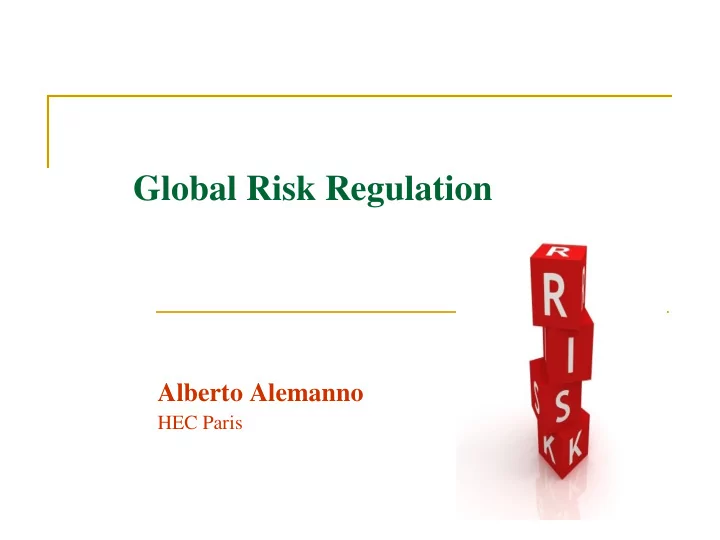

Cognitive biases A cognitive bias is a pattern of deviation in judgment that occurs in particular situations In particular,they consist in many distortions in the human mind that are difficult to eliminate and that lead to perceptual distortion, inaccurate judgment, or illogical interpretation Studied for how they affect belief formation, business decisions, and scientific research Cognitive biases are instances of evolved mental behavior
Cognitive biases II Availability heuristics/probably neglect Anchoring - the common human tendency to rely too heavily, or "anchor," on one trait or piece of information when making decisions Loss aversion/endowment effect – A loss from the status quo perceived as more undesiderable than a gain is seen as desirable Intuitive toxicology and « affiliation bias » Informational cascades Group polarization/Confirmation bias - a tendency for people to favor information that confirms their preconceptions regardless of whether the information is true Zero-risk bias – preference for reducing a small risk to zero over a greater reduction in a larger risk.
to learn more
to learn more (2)
Lessons learned Much what we think about risk does not make sense: Trend to overestimate highly publicized causes of death (cancer, tornados, homicides) and underestimate more common sources of death (stroke, asthma, botulism, influenza) Overestimate death from accidents and underestimate deaths from disease
Recommend
More recommend